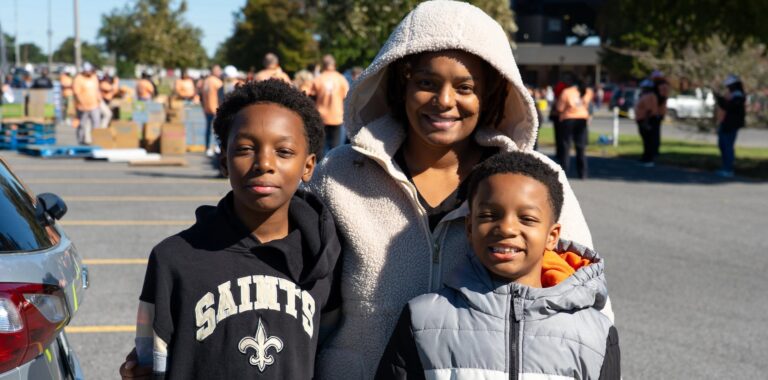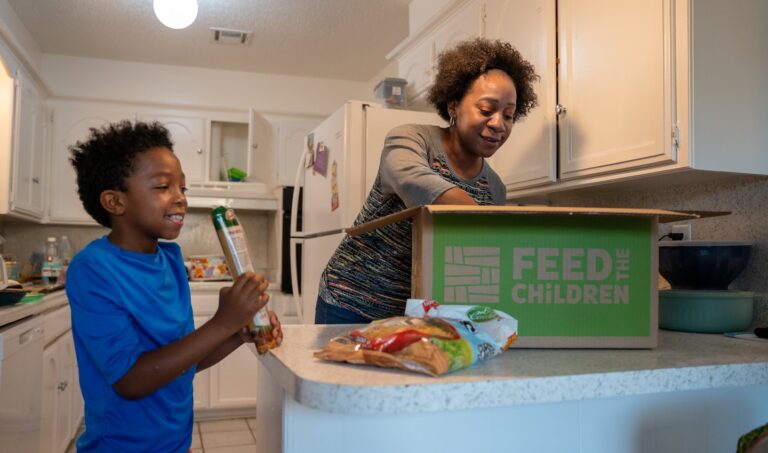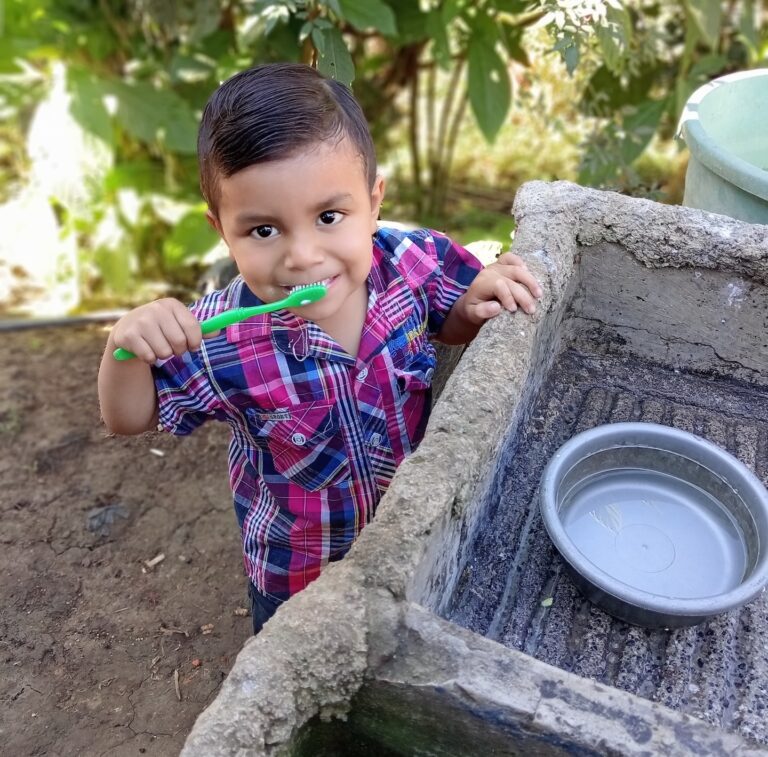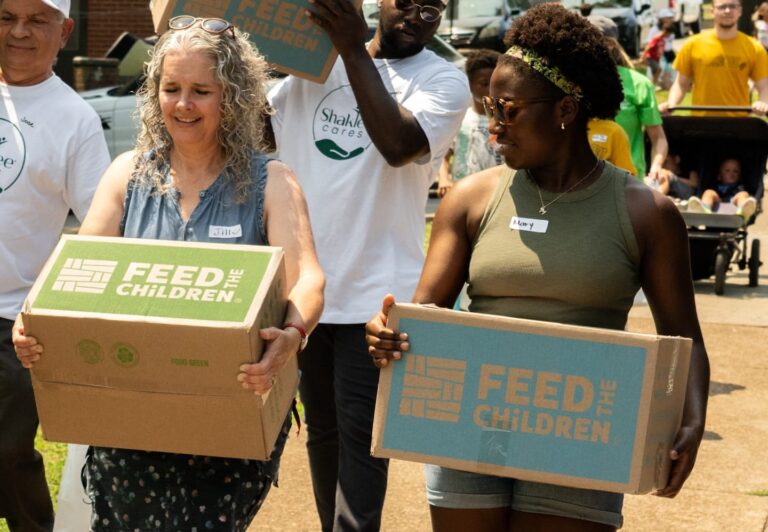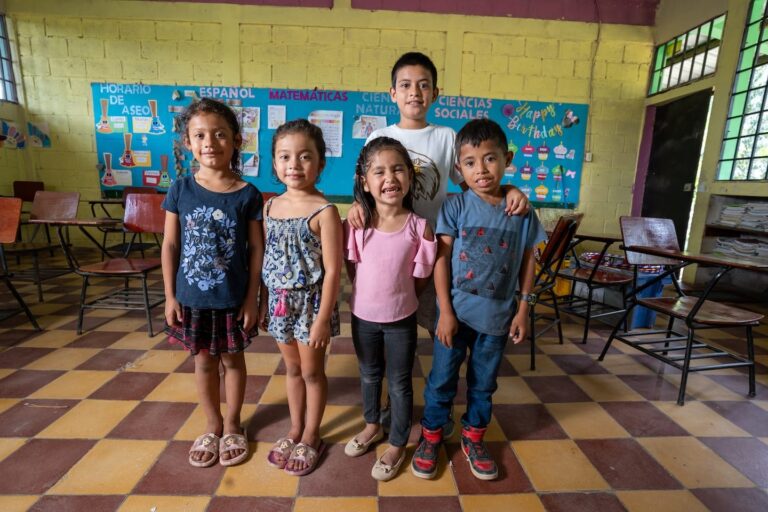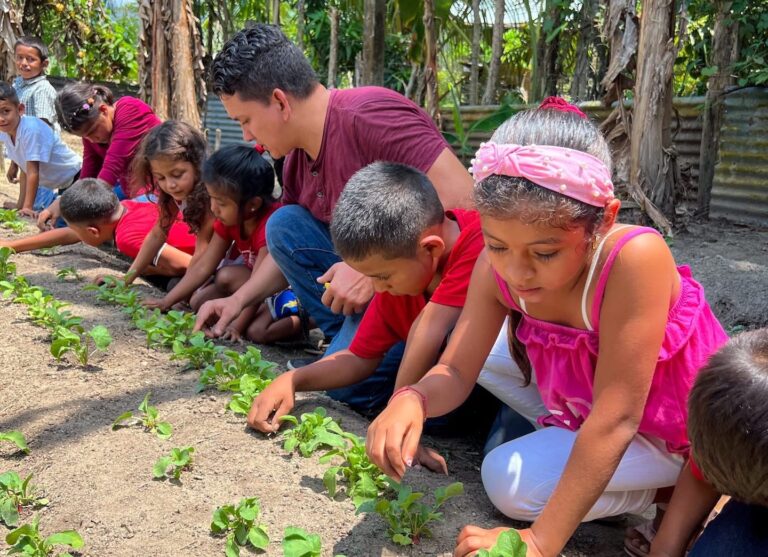
Hunger in the Land of Plenty
In the United States, one in five children is facing food insecurity, not knowing where their next meal will come from, or when. This can cause serious short- and long-term problems for kids. Yet despite this, hunger is often overlooked in our country. It isn’t a lack of compassion that causes this oversight. Rather, it’s the fact that in the land of plenty, hunger hides in plain sight.
Reagan knows this all too well.
“If you were to drive by our home, or come in for a cup of coffee, it would look like we have it all together,” Reagan says. She pauses for just a moment, listening for the sound of her three sons playing elsewhere in the house, before adding, “But that’s just not correct.”
She’s sitting at the family’s kitchen table – the same table where her kids will work on their school projects; where her husband Dean will sit when he comes home; where the family will gather, as often as possible, to share a meal. Here, too, the guest would sit with their cup of coffee. They could enjoy a drink in the sunny kitchen, smiling and chatting, and, like Reagan says, never notice anything out of the ordinary.
The night shows a different story.
Reagan and Dean sit close together at the table, speaking in hushed voices so the kids won’t wake. Papers are spread out in front of them, lines and numbers, too many, too high, final notice, past-due. The parents crunch the numbers, trying to find a way to make Dean’s most recent paycheck stretch until the next one.
“Food’s expensive, and every time we turn around it’s higher,” Reagan says. “Looking at what it cost ten years ago, it’s almost hysterical how different it is. And, of course, rent and bills and gasoline.”
Dean is a warehouse manager at a local company. Once upon a time, his salary would have been enough to secure a stable existence for his family. Today, it’s part of the problem – just too small to get by on; just large enough to cut the family off from help.
“I feel kind of like the middle class gets left out,” Reagan admits. “If we were under the federal poverty rate, we would get food assistance and housing assistance through the state. We’re in that gap where we don’t qualify for anything.”
Two of Reagan’s three sons are on the autism spectrum. Although the family has insurance, it doesn’t cover the full cost of the medication they need to manage their symptoms. Childcare for kids with special needs is also prohibitively expensive. It’s more cost-effective for Reagan to be a stay-at-home mom, rather than pay for costly specialized care.
“A lot of people assume that because we have children with disabilities that, oh, the state totally helps them, but that’s not true.” Reagan explains. “Unless you are extremely in the poverty level, you’re not getting help, and those bills are still coming in. And you still need to feed your children.”
Thankfully, Reagan was able to find the support she needs at Birch Community Services, a Feed the Children partner. At Birch, Reagan is able to get healthy food for her family, as well as essential items like soap and toothpaste. Knowing that these necessities are taken care of – regardless of how many bills are paid – is a huge relief to Reagan. And it’s something she wishes more people, especially parents, would talk about. Like us, she believes that hunger shouldn’t be hidden.
“To the mom who’s afraid to ask for support: just ask,” is her advice. Reagan adds, “If we’re quiet, nothing’s going to get done. But if we don’t speak up, nothing’s going to change.”

